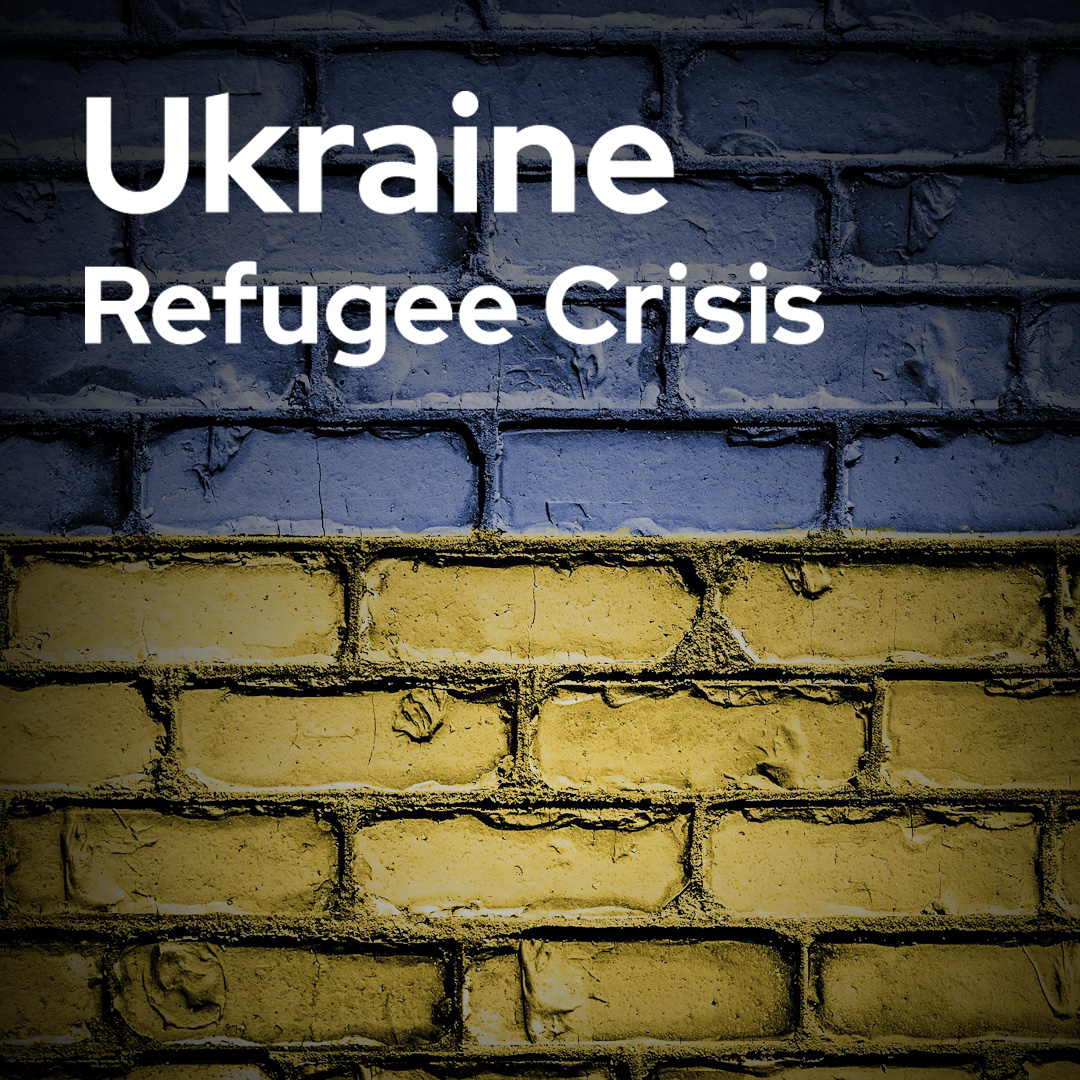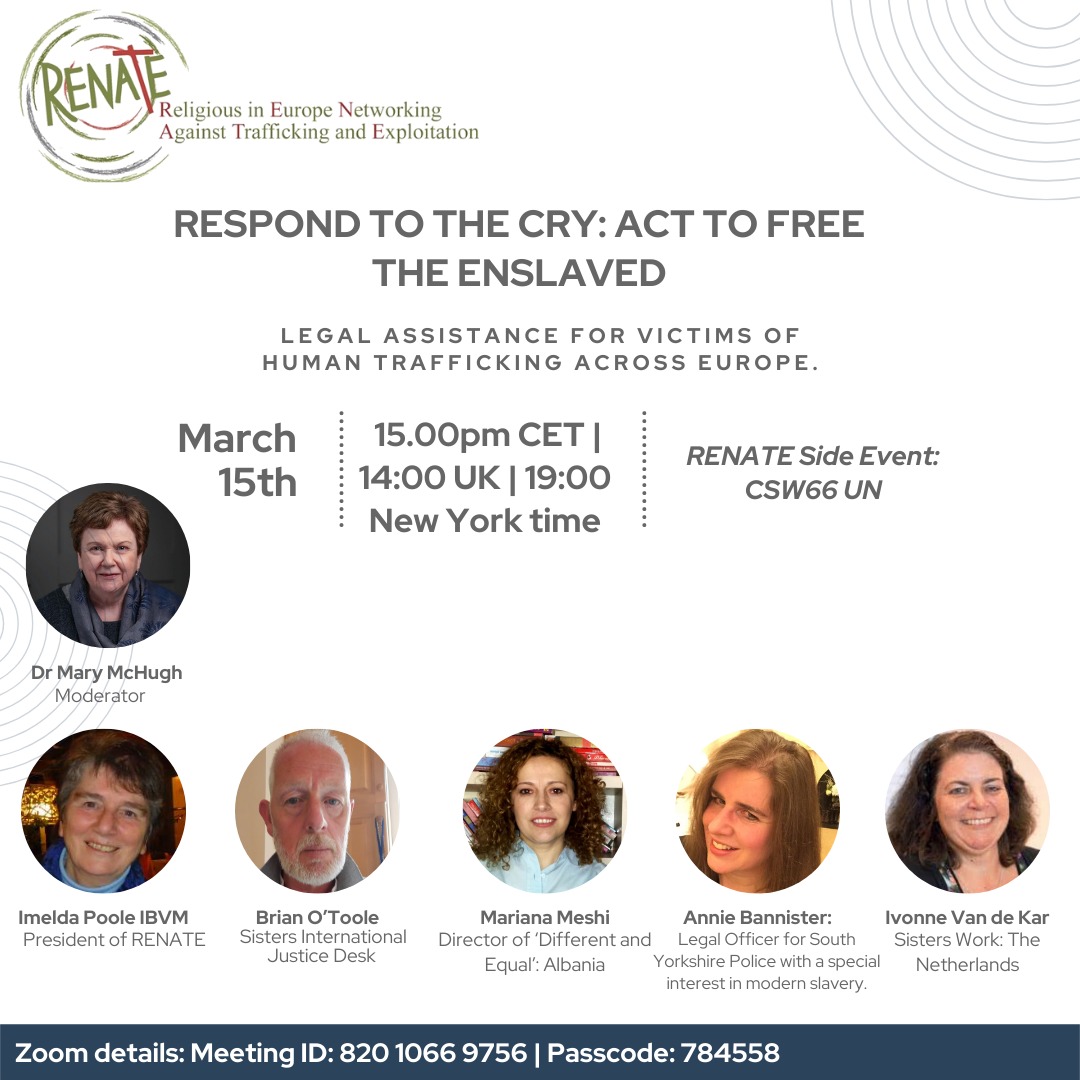Upcoming Webinar on Legal Assistance for Victims of Human Trafficking: UNCSW66 Side Event




This online forum is intended to support front-line professionals who
might encounter child victims of MSHT in the course of their work
and/or have responsibilities to ensure their well-being.
It offers front-line professionals the opportunity to access insights from the work of ECPATUK and the IASC on child trafficking in the UK in 2021, highlighting key elements of their snapshot report including policy developments, promising practice to safeguard and support children and recommendations for the future.
It also introduces professionals to the role paediatricians can play in addressing child MSHT, based on the guidance prepared by Dr Laura Wood and Dr Sarah Boutros for the Royal College of Paediatrics and Child Health.
Finally, it highlights the knowledge and skills professionals need in order to prevent, support and care for child victims of trafficking and modern slavery, with reference to the new Skills for Care and Development Child Training Framework.
This on-line forum is also intended for those who are interested in improving their understanding of child modern slavery and trafficking and best practice.
Please register in advance for this event:
https://stmarys.zoom.us/meeting/register/tZEpcOyvqz4uH9W39tRb0H dYQ8RwTYf0VN0z
After registering, you will receive a confirmation email containing information about joining the event. For further information please contact Ruth Van Dyke at ruth.vandyke@stmarys.ac.uk or Anta Brachou at anta.brachou@stmarys.ac.uk .

Article source: OSCE press release
WARSAW, 7 March 2022 – The OSCE Office for Democratic Institutions and Human Rights (ODIHR) is alarmed that more than 1.7 million people have already fled Ukraine as a consequence of the Russian Federation’s military attack, with many others still trying to find safety by crossing international borders or moving inside the country. An increasing number of civilians are falling victim to what appears to be the indiscriminate use of explosive weapons in residential areas, which is prohibited by international humanitarian law.
“Safeguarding civilian lives during a military attack is an obligation that must be met unreservedly and without delay. It is vital that safe passage is guaranteed to all civilians in need of protection, in line with the commitments made by every OSCE country, as well as the norms of international law,” said ODIHR Director Matteo Mecacci. “Failing to ensure safe passage for those in need will continue to cause immense suffering to innocent people.”
Due to the present crisis, hundreds of thousands of civilians are unable to move to safety or seek international protection. Particularly those in vulnerable situations such as the elderly, children, or people with disabilities, require particular attention and assistance to reach safety.
ODIHR applauds the steps taken by many countries to open their borders to assist people fleeing Ukraine. Recognizing the immense challenge of dealing with a mass movement of this kind, more efforts and coordination are still needed. It is also crucial that such assistance is provided effectively and without discrimination to all those who need it, and to observe all obligations under international humanitarian and human rights law.
All countries of the OSCE have recognized that the rights of people at risk of displacement or already affected by it “need to be effectively protected in all phases of the conflict cycle” (Vilnius 2011). OSCE countries have also committed to “promote dignified treatment of all individuals wanting to cross borders, in conformity with relevant national legal frameworks, international law, in particular human rights, refugee, and humanitarian law” (Ljubljana 2005).

When: March 15th 2022, 15:00 CET
Where: Click here for Zoom URL
Meeting ID: 820 1066 9756
Passcode: 784558
About the event
RENATE endeavours to abolish all forms of human trafficking and exploitation that violates the human dignity and rights of persons. Throughout its European Network, RENATE adopts a Victim-Centred, Human Rights, Trauma-informed approach in relation to the Law. At this event, it demonstrates the extensive integrated work of its Network in responding to victims of human trafficking across 31 European countries. The work of RENATE ranges from the protection and care of victims in shelters to prevention through education and training. It also includes actions for systemic change through advocacy and campaigning and the empowerment of victims in the process of prosecution.
About RENATE
RENATE members are supported in empowering women and girls to speak and act for justice and equality, especially in relation to the violation of their dignity and human right.
RENATE provides moral, spiritual, educational and financial support to victims of human trafficking in shelters, that will enable them to reintegrate into society and live life to the full.
RENATE provides education and training that empowers victims who are seeking to rehabilitate their lives in order to obtain fulfilment and decent employment.

FOCUS: This issue highlights the increase in sex tourism and what
governments and the tourism industry can do about it.
The lower socioeconomic condition of destination countries for sex tourists and the relative anonymity awarded to consumers is pointed to as a factor leading to criminal exploitation. Even in countries where prostitution is legal, sexual slavery and the abuse of minors are in evidence, and these activities are not permitted under any legal system.
This month’s newsletter reports numerous examples of progress in fighting against trafficking in the context of sex tourism, profiling the work of governments, law enforcement and NGOs in several countries.
Recommendations are made for further victim support and preventative action. Tourism companies and travel agencies are urged to be more proactive in pursuing a zero-tolerance policy towards any customers who seek out sex tourism while abroad.
Read the full newsletter here: